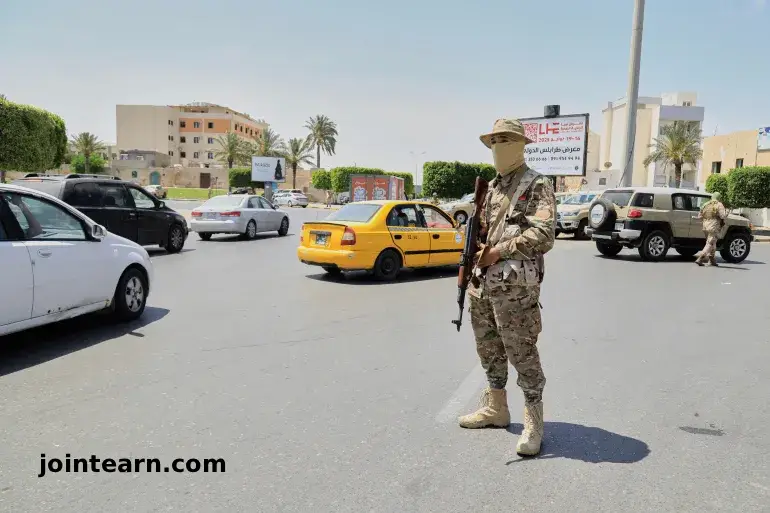
Doctors Without Borders says its expulsion order threatens critical care for migrants and vulnerable patients.
TRIPOLI, October 29, 2025 — The humanitarian medical organisation Doctors Without Borders (Médecins Sans Frontières, MSF) has been ordered to leave Libya by November 9, with no explanation provided by the country’s authorities.
In a statement released Wednesday, MSF said it received a formal letter from Libya’s Ministry of Foreign Affairs instructing the organisation to end its operations in the country.
“No reason has been given to justify our expulsion, and the process remains unclear,” said Steve Purbrick, MSF’s head of programmes in Libya. “We believe MSF still has an important role to play — especially in treating tuberculosis, supporting the national health system, and ensuring access to care for refugees and migrants.”
A Sudden Expulsion Amid Ongoing Crisis
The expulsion comes months after Libyan authorities suspended MSF’s activities in March and temporarily shut down its offices. MSF said at the time that staff had been interrogated by the Internal Security Agency, along with personnel from nine other humanitarian organisations working in western Libya.
Since then, the NGO has struggled to maintain even limited operations. Despite the restrictions, it conducted over 15,000 medical consultations in 2024 and was instrumental in providing emergency relief during the Derna floods, which killed thousands in September 2023.
“Our registration with the United Nations-recognised government remains valid,” Purbrick added. “We continue to seek a positive solution that will allow us to resume our work where it is most needed.”
Humanitarian Gap Widens
MSF warned that its expulsion will leave a major humanitarian vacuum in western Libya, particularly for migrants and refugees trapped in detention centres or living in precarious conditions without access to medical care.
The organisation said that no other international NGO currently provides medical assistance to those populations in the region — a situation made worse by European border externalisation policies and cuts in international aid.
“This is happening in a context of increasing obstruction of NGO intervention,” MSF said. “Combined with drastic aid cuts and European cooperation with Libyan authorities to curb migration, the result is catastrophic for human lives.”
Libya’s Fragmented Political Landscape
Libya remains divided between two rival administrations — the UN-backed Government of National Unity (GNU) in Tripoli, led by Prime Minister Abdul Hamid Dbeibah, and an eastern government supported by General Khalifa Haftar and the House of Representatives in Tobruk.
The country has been mired in political instability since the 2011 NATO-backed uprising that toppled longtime ruler Muammar Gaddafi.
Humanitarian groups say the fragmentation has made it increasingly difficult to deliver aid, with rival authorities often competing for control over foreign NGOs and international funding.
Migrants at Risk
Libya remains a key transit point for thousands of African and Middle Eastern migrants attempting to cross the Mediterranean to Europe. Many are intercepted at sea by Libyan forces — often trained and funded by the EU — and detained indefinitely in overcrowded facilities where abuse, torture, and disease are rampant.
MSF has repeatedly denounced these conditions, calling them “inhuman” and urging European states to end their support for forced returns to Libya.
Human rights observers warn that expelling MSF will further expose migrants to neglect and abuse.
“This decision could leave thousands without access to even the most basic healthcare,” said a humanitarian analyst based in Tunis. “For many refugees in detention, MSF was the only medical provider they could trust.”
Outlook
As of late October, MSF said it remains in dialogue with Libyan officials and hopes to negotiate continued access to key medical programmes. However, with its staff facing mounting restrictions and intimidation, its future presence in Libya remains uncertain.
Founded in 1971, MSF operates in more than 70 countries with a global staff of 67,000. Its teams have been repeatedly targeted or expelled in conflict zones, from Sudan to Afghanistan to Yemen, for speaking out about human rights violations.
“We will continue to engage with the authorities,” MSF said. “Our only goal is to provide lifesaving medical care to those who need it most — regardless of politics.”


Leave a Reply